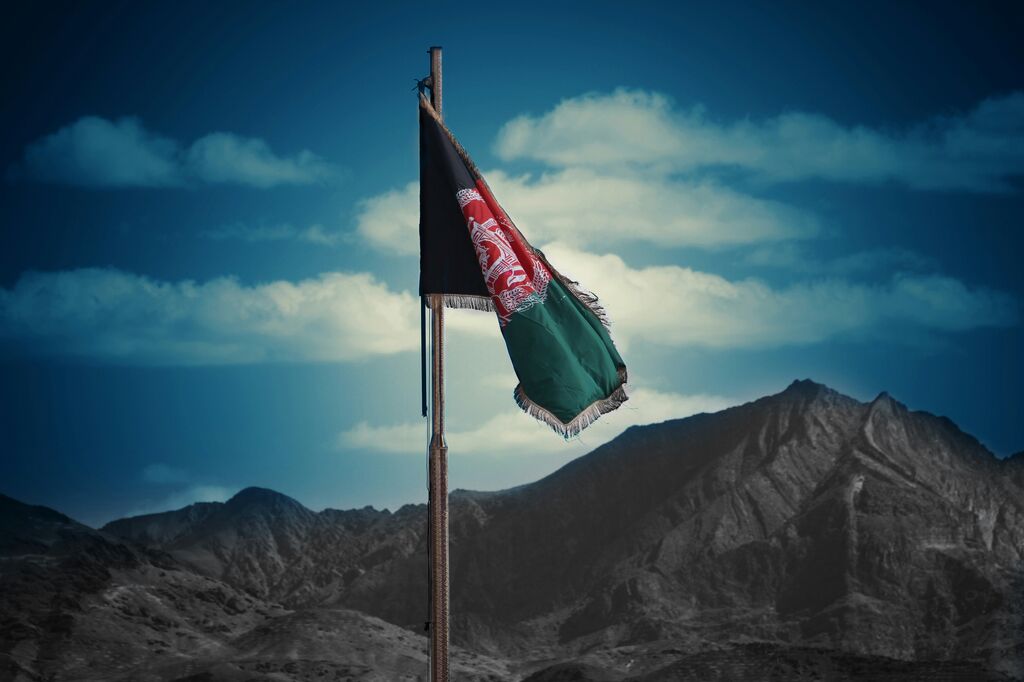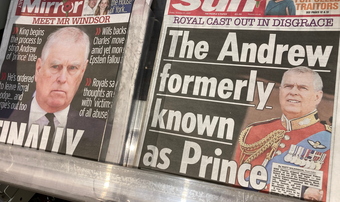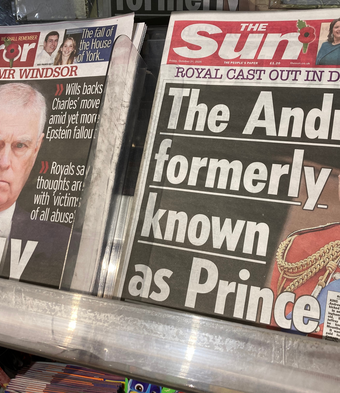'The most expensive email in history': a Christian response to the Afghan data leaks

It’s been called “the most expensive email in history”. The news that a Royal Marine had inadvertently circulated a list of 25,000 Afghans, who had applied for resettlement in the UK after they claiming they had helped the British during the war with the Taliban, has been met with widespread horror.
I call it “news”, although there is really nothing “new” about it; The Times and other newspapers had been aware of the leak for nigh-on two years, only to be prevented from reporting on it by a super-injunction; this means that the press could not only not report on the disaster, but were not even allowed to report that an injunction had been taken out.
The Royal Marine had been asked to check with trusted Afghans about a small number of applicants for the Afghan Relocations and Assistance Policy (Arap), which was designed for Afghans who had fought alongside British forces. The Marine instead shared the whole spreadsheet, twice. It is estimated that the cost of the error will reach £7 billion.
The leaked dataset is believed to have put up to 100,000 Afghans at risk of “death, torture, intimidation or harrassment” when families and other dependents are included; excerpts from it were posted on social media back in 2023 in a Facebook group with more than 1,300 users, some of whom may have been Taliban infiltrators, causing panic amongst the Ministry of Defence.
Yesterday, the story became even worse, as it was revealed that the data leak also contained the names of more than 100 British special forces troops, MI6 spies and military offices.
The story touches on a number of areas of interest.
The granting of a super-injunction raises questions about the freedom of the press, and particularly around democratic accountability. For context, Keir Starmer was not made aware of the data breach until he became Prime Minister; even though the now defence minister John Healey is rumoured to have known while being in opposition, he was forbidden from telling the Leader of the Opposition. A number of MPs are complaining about being kept in the dark.
The resettlement scheme has implications for the debate around immigration; some of the Cabinet of the time spoke against allowing so many people from Afghanistan to move to the UK precisely for such a reason. Others - particularly on the political right - are complaining about the impact which the volume of people being resettled will have upon social cohesion. At least one MP has directly spoken about how it will contribute to the rise of Islam. And on the other hand, some lawyers are looking to invoke human rights law to force the Government to actually take more people in, with the Telegraph suggesting that 100,000 could do so.
And the whole affair brings up the spectre of the ‘War on Terror’ once again; Britain entered Afghanistan in support of the US, after the Americans accused the Taliban of refusing to co-operate and hand over Al-Qaeda and Osama Bin Laden. The invasion began in 2001, and within months, Kabul had been captured and the Taliban were driven out of their final stronghold. However, after the US withdrawal in 2021 (the UK had withdrawn some time earlier), the Taliban reseized Afghanistan and has instituted an Islamic fundamentalist regime.
When a story like this breaks, we might wonder: is there a specifically Christian approach we can take in response? In these Friday long-reads, we try and think through the lens of a Christian worldview about whatever the biggest story of the week is, whether it be war in the Middle East, welfare cuts in the UK, or the latest political skullduggery. There was one week in which Ross even wrote about the crisis over school concrete!
It is our contention that the Bible has something to say about everything. The church leader John Stott was well-known for the practice of ‘double-listening’; keeping the Bible in one hand, and the newspaper in the other. The Bible helps us to understand the world in which we live, telling us who we are, who God is, and how we should live.
So what principles can we take from it even for a story like this one, to which a Christian worldview seems so incidental at first glance?
All work is important in God’s economy
A few months ago at our team residential, our Data Manager at CARE ran a session for us all entitled: ‘God loves data’. Cue various quips about how God is so fond of data collection that he included a whole book of the Bible called ‘Numbers’...
But her point was a significant one: how we handle data matters (and God cares about it!). We believe in a God whose eye is across every detail, no matter how small. There is nothing so incidental that it escapes his gaze. Jesus says in Matthew 10:29: “Are not two sparrows sold for a penny? Yet not one of them will fall to the ground outside your Father’s care.”
And how we handle data matters too. Some of us might have found the rise in GDPR-courses (and other such training schemes) a frustrating development in recent years, but these things have a purpose: they protect privacy, they honour individuals (made in the image of God), and sometimes they even secure safety. The story of the Afghan leaks brings that home in the most dramatic of circumstances.
Rather than seeing data-exercises as something to be rushed through, what might it look like if we viewed them as a way of serving God?
There is no work too menial that in God’s economy it cannot be done for his glory. In 1 Corinthians 10:31, we read, “So whether you eat or drink or whatever you do, do it all for the glory of God.”
So yes, data handling matters. Getting it wrong can have real-life consequences. But it also matters to a God who knows every human being, loves them all, and wants to see everyone treated rightly.
Truth will always out in the end
The granting of the super-injunction has proved one of the most controversial parts of the story. Those in favour have argued - with some justification - that it was important to preserve secrecy in order to protect those whose names appeared on the list, at least at first.
Sir Grant Shapps, who was Defence Secretary when the super-injunction was first put in place, commented today that he “would do the same thing all over again”. This has taken on additional significance given the additional revelations about British Special Forces who were named: Shapps said he would “walk over hot coals to protect those guys”.
Others have argued that the super-injunction was undemocratic, and that Parliament should not have been kept in the dark; it meant that, in effect, the Government was protecting its own reputation, they argue.
There is a difficult balance to strike here. Generally, very few people are free speech absolutists; there are (rightly) restrictions on the freedom of the press, such as our laws around libel, or incitements to violence. It is only right that the Government keep certain things secret, particularly around defence and security issues. I don’t think I’d want us to release the nuclear codes, for instance!
But at the same time, we also believe in governments being held accountable: this is a cornerstone of any democracy.
The super-injunction remained in place for almost two years; it seems likely that the Taliban were aware of its existence (and may even have had access to it), and some have even argued that keeping the super-injunction made it more dangerous for those on the list.
Paul Rimmer, who conducted a review of the superinjunction for the Ministry of Defence, wrote: “It appears unlikely that merely being on the dataset would be grounds for targeting. It is therefore also unlikely that family members – immediate or more distant – will be targeted simply because the ‘principal’ appears in the dataset. Should the Taliban wish to target individuals, the wealth of data inherited from the former government would already enable them to do so.”
Similarly, Mark Stephens, a trustee of Index on Censorship, commented: “The difficulty here is, I think you’re only entitled to the superinjunction for as long as it is necessary, essentially to preserve life, and it’s not clear that this didn’t run on a bit longer.”
In short, although a super-injunction (or at least an injunction) may have been justified at first, the longer it went on, the harder it became to defend.
Whatever the right course of action was, as Christians, we don’t believe that ‘The truth will out’ is just a proverb; regardless of whether it be in this world or the next, we trust in a God who “knows the secrets of our hearts” (Psalm 44:21).
Jesus warns us in Luke 12: “There is nothing concealed that will not be disclosed, or hidden that will not be made known. What you have said in the dark will be heard in the daylight, and what you have whispered in the ear in the inner rooms will be proclaimed from the roofs.”
The impossible job
The longer I have been following politics, the more I have sympathy for politicians!
Mistakes happen in every walk of life; that is part of what it means to be flawed human beings.
Of course, that does not mean that all mistakes are equally consequential, or that there should not be consequences for failings: there should (although it is not publicly known whether the Royal Marine, or his superiors, have faced sanction for this particular error).
But the Government were left here with a series of conflicting interests and impossible choices.
Some Afghans had stood shoulder-to-shoulder with British soldiers against the Taliban, only to be left defenceless after the Taliban’s incursion in 2021. People, rightly in my view, argued that we had a duty to protect them (and indeed, some were tortured and executed by the Taliban as traitors before this could occur).
But not everyone who applied to be relocated to the UK was actually eligible, or had anything to do with supporting the British. The Telegraph claim today that 100,000 people sought relocation to Britain on the grounds that they had helped British forces, or were related to someone who had done, but that just 1 in 16 had genuine claims for asylum. Ironically, many of those on the leaked list shouldn’t have been on there before.
A number of Cabinet ministers are reported to have expressed serious concerns at the time about the relocation scheme, including Suella Braverman (then Home Secretary) and James Cleverley (then Foreign Secretary), particularly citing security risks (such as if the scheme were infiltrated by any Taliban agents).
And all of this is occurring within the context of a country which is increasingly antagonistic about mass-immigration and a society which is increasingly fractured around multi-culturalism.
In responding to the data leak, the Government have had to weigh up what they feel is morally right and fair, against what is affordable, what is democratic, and what is safe. They are balancing potential security risks (and societal backlash) in the UK with certain security risks for allies in Afghanistan; they are weighing up foundational British principles like freedom of expression and the rights of Parliament with matters of life and death.
These decisions are difficult: and they will continue be difficult. Afghans are now being encouraged (via WhatsApp) to sue the British government over the data breach; the Manchester-based law firm Barings already has 1,000 clients suing who have put in claims, with another 100 clients doing the same every single day currently.
Sometimes there are no good outcomes; there is only damage limitation, and a least-worst option.
It is at times like these that praying for our government takes on even more importance. In the Old Testament, we read Psalms praying that God will grant the King wisdom and righteouesness (eg. Psalm 72). Similarly, we read in 1 Timothy 2:1-2: “I urge, then, first of all, that petitions, prayers, intercession and thanksgiving be made for all people— for kings and all those in authority, that we may live peaceful and quiet lives in all godliness and holiness.”
I have no idea what the right course of action is, and I suspect that many of those in the Government do not either.
Every sitting in the House of Commons begins with a prayer, even if few attend for it. It goes as follows:
“Lord, the God of righteousness and truth, grant to our King and his government, to Members of Parliament and all in positions of responsibility, the guidance of your Spirit. May they never lead the nation wrongly through love of power, desire to please, or unworthy ideals but laying aside all private interests and prejudices keep in mind their responsibility to seek to improve the condition of all mankind; so may your kingdom come and your name be hallowed. Amen."
Being in Government is the impossible job. Our MPs, civil servants, and other leaders need our prayers.






